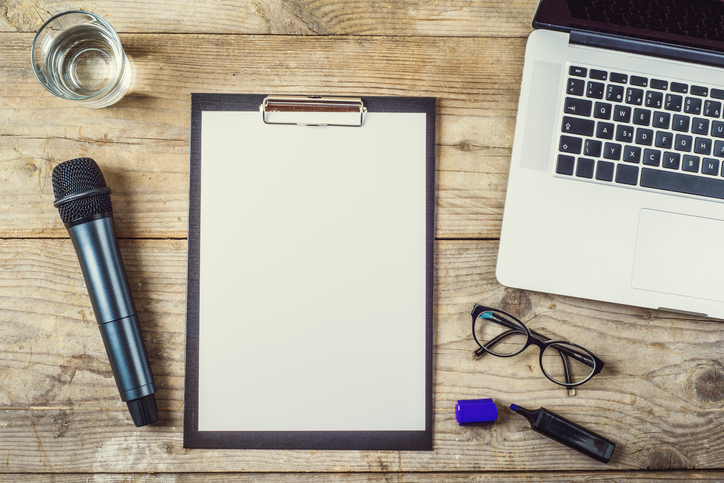The Art of the Interview
-
Category: Blog
What makes for a great interview that will eventually find its way into a ghostwritten memoir or autobiography?
I turned to an interview with Terry Gross, the host of NPR’s Fresh Air written by Susan Burton for the New York Times Magazine, to reinforce my own experiences and theories.
 Gross has conducted more than 13,000 interviews with artists, writers, jazz musicians, and politicians in her more than 40-year career, so she has a lot to say that is worth paying careful attention to. She’s also the author of All I Did Was Ask, a compilation of some of her favorite interviews with an introduction on the life she has chosen to lead. The title of her book gives you a clue to her interviewing style – it has a certain humility and as an interviewer, she is looking for the telling question that will lead to a meaningful conversation.
Gross has conducted more than 13,000 interviews with artists, writers, jazz musicians, and politicians in her more than 40-year career, so she has a lot to say that is worth paying careful attention to. She’s also the author of All I Did Was Ask, a compilation of some of her favorite interviews with an introduction on the life she has chosen to lead. The title of her book gives you a clue to her interviewing style – it has a certain humility and as an interviewer, she is looking for the telling question that will lead to a meaningful conversation.
Creating a Meaningful Conversation
That’s what interviewing is about – a meaningful conversation in which the interviewer, as Gross says, “listens intently” for clues to the story behind the story and for the direction in which to take the interview.
When I sit down with a client, I usually don’t have a lot of information about them – unlike Gross who may have copious research at her disposal. Rather I’m trying to establish a rapport and a level of trust that will carry us into some deep waters of introspection and truth telling. I try not to insinuate myself into the conversation, but if I feel that saying something like “I’ve felt that way too,” or sharing a personal anecdote that reflects what my client is saying as a way of expressing empathy I will do it.
Initial Meeting Objectives & Goals
On a first interview/meeting, I may try and develop a chronological roadmap with events and dates, which will then help me keep in mind what Gross calls “major destination points,” as we go from one interview to the next. I also may ask my client to identify major turning points in their life and what motivated them to make Choice B over Choice A, all in the service of uncovering heart’s desire, goals, aspirations. If this sounds a bit formulaic, it doesn’t always go as planned. I may ask for names and dates, and instead my client will start talking about an event in their life, which initially may not seem like it’s going anywhere, but in the end reveals something important to their story. There is an element of improvisation to an interview, and I always need to stay open to the unexpected and not try and direct the conversation too strictly.
I remember my first interview with a wonderful client. I was ready with my “roadmap” technique and he jumped right in to telling me the significance of a lifetime hobby, which ultimately became a chapter in the book, although not the first chapter. I realized that he needed to talk about something less personal in our first interview in order to become comfortable with me and talking about a hobby was “neutral” ground although his choice of this particular hobby was a window into a lot more about his life, which I learned sometime later.

Don’t be Afraid of Surprises
In an interview, I try to keep the conversation focused but sometimes, the tangent that the conversation takes leads to unexpected surprises. In fact, if an interview doesn’t have an element of surprise, I’m not really doing my job. A memoir in order to have sizzle, a compelling rhythm and artfulness needs an element of surprise, not only for the reader, but also for the teller of the story. There’s nothing more exciting than for a client to say, “I’ve never thought about it that way before,” or “I didn’t realize the connection between these two events until just this moment.”
In an interview, it’s important to gauge how far to push someone into highly personal, and sometimes highly painful terrain. What often works is to say, “Let’s come back to that later,” and with an interval of time – be it a few minutes later – or a few weeks later, my client is often willing to tackle the issue – it’s as if the heat has been turned down on the burner, or the whole subject doesn’t seem like such a hot potato – or not. There may be some revelations that are best left off the page, and I always honor these requests.
That’s part of the trust – that my client trusts me to understand where the boundaries of their story are.
What Kinds of Questions to Ask?
What kinds of questions to ask in an interview: Generically speaking, open ended questions that elicit more than a yes or no answer. Keep questions short and don’t try and bundle several questions into one long one – everyone will lose their focus. One of the easiest and best questions is the one that journalist, writer Studs Turkel recommends: “And what happened next?” It’s open ended, general in nature, and shows that you are really interested in what’s on the table.
When I come to the end of an interview session I usually ask, “Is there anything that we missed today?” or “What shall we talk about at our next session?” and “Did we have fun?”
Tips & Tricks
In ghosting a memoir or autobiography, there are some tools of the trade. I always record every interview and take notes simultaneously – those notes help me remember to come back to something or to formulate a question for a follow up interview. Once the interviews are completed, everything is transcribed by a professional (leaving out the uhs, ums and the telephone conversation that interrupts an interview). I always ask my client to carefully review the transcripts so that when I start the first draft, I am working from material that reflects what my client intended to say.
If this blog makes you curious about the art of the interview – great – because without curiosity an interviewer will not find the story. Staying curious, noticing details, and being present so that you as a client feel heard are what an interview is all about.

